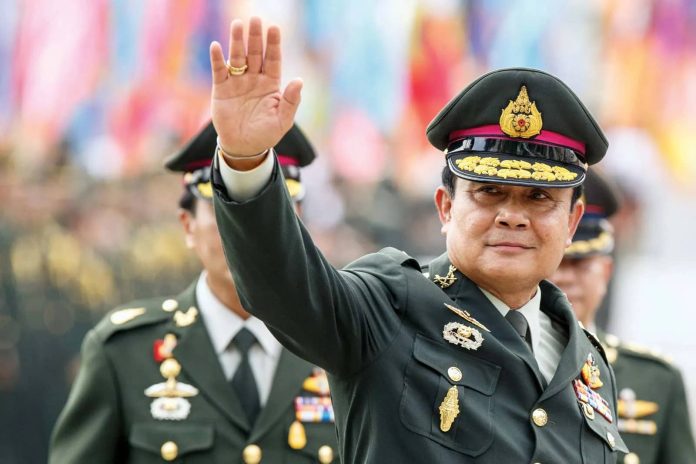Thailand’s Constitutional Court has suspended Prime Minister Prayuth Chan-ocha from office while it investigates a legal challenge to his term limit.
After granting a motion for the prime minister’s 8-year suspension of responsibilities, the Constitutional Court ordered Prayut to give an answer to the charges within 15 days. Opposition parties have launched a complaint claiming that Mr. Prayuth, who has been in control since 2014, has overstayed his term.
The decision of the Constitutional Court meeting has been published by the Constitutional Court. Following receipt of the petition, which was supported by 171 MPs from the opposition party, the PM’s term was halted because he held the position of Prime Minister for an extended period of time in violation of sections 170 paragraph two and 158 paragraph four of the Constitution of the Kingdom of Thailand.
The Thai constitution restricts prime ministers to an eight-year term.
General Prayut Chan-ocha was appointed Prime Minister for the first time on August 24, 2014, in accordance with the 2014 interim constitution, which was drafted in the aftermath of the May 22, 2014 coup, and the National Legislative Assembly (NLA), which was appointed by the Head of the National Council for Peace and Order (NCPO).
On August 21, 2014, the NLA passed a resolution approving on the nomination. General Prayut was elected Prime Minister by a unanimous majority of 191 votes with three abstentions.
Following the general election on March 24, 2019, General Prayut Chan-ocha was pleased to be sworn in as Prime Minister for the second time on June 9, 2019, in line with the 2017 Constitution.
On June 5, 2019, members of Parliament voted in support of the nomination. General Prayut Chan-ocha, who is on the Palang Pracharat Party’s (PPRP) list of prime ministers, has been elected by coalition government members and senators. With a vote of 500 to 244, including three abstentions.
Nevertheless, things have been more difficult for the Prime Minister in recent years as he has been confronted with increasing criticism and reaction from within his own coalition. Recent events in this year have shown that he is able to withstand many votes of no confidence.
Those who disagree with Mr. Prayuth and activists have contended that his tenure started when he was the head of the junta. After seizing power in a coup in May 2014, he named himself prime minister of the new military government in August of the same year.
That, according to his detractors, indicates that his tenure ought to expire this week.
However, his supporters assert that his tenure did not begin until 2017 (the year a new constitution took effect) or even after a general election in 2019 that resulted in his maintaining his position of power.
If he were to win the forthcoming general election, the provisions of those terms would allow him to theoretically continue serving until the year 2027.
Earlier, a crowd of demonstrators had assembled in front of the parliament buildings in Bangkok, the nation’s capital, demanding that he quit. The judgment was a rare success for opposition parties, but it might be a temporary one as well. These parties have been working to weaken Prayuth’s grip on power via elections, legislative maneuvering, and court battles.
A petition alleging that Prayuth has surpassed an eight-year term limit imposed for prime ministers in the 2017 constitution, which was authored by a military-appointed council after the coup and enacted in a referendum, prompted the court to suspend Prayuth while it analyzes the case.
In Thailand, the constitutional court is a body that receives a lot of criticism for what is said to be its constant bias towards political parties who are in opposition to the government of Prayuth Chan-ocha, which is headed by the military.
Therefore, it comes as a bit of a surprise that the judges have now chosen to decide to suspend him from his position while they determine whether or not he has hit the eight-year term limit that is required in the constitution that he had created following his power takeover in 2014.
According to the chain of succession within the government, Deputy Prime Minister Prawit Wongsuwan, who is 77 years old, would take over as Interim Prime Minister as a result of this decision. A vote is scheduled to take place in the Thai parliament prior to May of the following year; however, the Deputy Prime Minister has indicated in the past that the vote might take place as early as November.



